

Sure, you know the not-so-smart choices that hurt our skin like tanning and smoking, but what about simply living life? Turns out, our skin is assaulted morning to night by a slew of environmental aggressors, especially in a city setting. Plus, the daily choices we make — from eating out to meeting for cocktails—are also wreaking havoc. "Science shows that environmental exposure and lifestyle habits truly do age us," says Elizabeth Arden Consulting Dermatologist Dendy Engelman, M.D. Take a look at the effects city living can have on your skin—and what you can do about it.
Pollution
"Over time, pollution particles have been shown to break down collagen and elastin and make us look older more quickly, in addition to causing excessive hyperpigmentation," says Dr. Engelman, who notes that studies show that people who live in urban cities (especially those with highly trafficked roads) have 20 percent more hyperpigmentation than those who live in more rural settings. Here's why: Excessive pollution translates to increased free radicals that can enter skin, degrading collagen and potentially altering their DNA. "And it's easy for them to do so—these damaging particles are 20 times smaller than pores," explains Dr. Engelman.
The Fix:
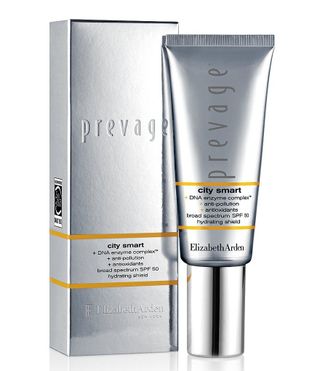
Apply a skincare product like PREVAGE City Smart Broad Spectrum SPF 50 Hydrating Shield, which creates an invisible skin shield combining pollution and UV protection and, thanks to a DNA Enzyme Complex, it also strengthens skin. Plus, it's reinforced with a powerful antioxidant blend to help neutralize skin-damaging free radicals.
Sun Damage
By now you should be an expert in the harmful effects of UV light on skin, right? From speeding up collagen breakdown (that leads to premature fine lines) and not-so-soft skin texture, to excessive pigment and even skin cancer. And while you may think that you never get any sun because you're constantly indoors, incidental exposure adds up—to and from the subway, errands, sitting in a cab, and most of all, the time spent at that cubicle-near-a-window you worked so hard to get. "You're getting more sun exposure than you think you are—those car and office windows don't shield UVA rays," says Dr. Engelman. "These highly damaging wavelengths of sunlight degrade collagen rapidly and cause hyperpigmentation and skin cancers more readily than UVB, the rays known to cause sunburns."
The Fix: Shield any exposed skin—face, ears, neck and hands—every day, 365 days a year, 24/7 (ok, maybe not while you sleep.) Opt for a broad spectrum sunscreen that feels lightweight and acts as a great base to makeup. Dr. Engelman swears by layering sunscreens to create a better shield, such as PREVAGE City Smart Broad Spectrum SPF 50 Hydrating Shield, a 100% mineral broad spectrum sunscreen, which filters out UVA and UVB rays under PREVAGE Anti-Aging Foundation Broad Spectrum Sunscreen SPF 30.
Bacteria and Germs
From your favorite cocktail lounge to the club you and your #squad danced at all night, there are countless germs and bacteria lurking at your nighttime hot spots. Oh, and the seat and door handle of your Uber home? Yes, that's filthy, too. While you might just think gross, it could be affecting your skin as well. "These places are typically dark and dirty," says Dr. Engelman. Plus, you don't know how others are behaving after a few cocktails—are they washing their hands before touching door knobs, seats, counters and more? What happens next? You move your hair out of your face to get a glimpse of a man-crush or use your fingertip to make sure your eyeliner and lipstick are in check. Next thing you know, you have a batch of breakouts the next day.
Stay In The Know
Marie Claire email subscribers get intel on fashion and beauty trends, hot-off-the-press celebrity news, and more. Sign up here.
The Fix: While you can't control the cleaning service of the bar you're at or the hygiene habits of those around you, you can keep your hands sanitized to prevent unwanted breakouts. Engelman suggests using an alcohol-free sanitizer that won't leave skin feeling dry. And use it beyond the club—spray or wipe down your cell phone, keyboard, etc. too. Think you aren't touching your face? Think again. "On average, people touch their face up to two thousand times a day," she says. "And if you can minimize the amount of organisms transferred to your skin, the better it will look."
Dining Out
Whether Seamless is your nightly go-to or you're eating out with friends several times a week, if you aren't making your meals yourself than you simply don't know what's in the food you're eating. Most likely, it's packed with sodium. What does this mean for skin? "Subcutaneous swelling," says Dr. Engelman. What you see in the mirror: Increased puffiness in your face as well as your thighs ("Cellulite becomes more evident," she says) because your body is forced to hold onto more water. You may not be pouring the salt shaker on your food, but takeout joints and restaurants add extra salt to food to make it taste better (which could equal you consuming 12 times more than the recommended daily allowance).
The Fix:
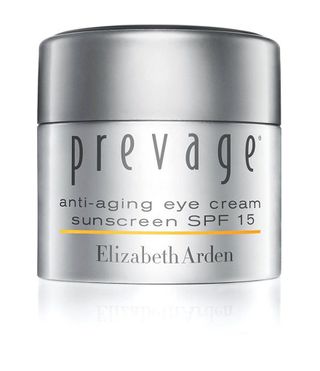
First, try to cook more at home so you can monitor your salt intake (there are tons of ready-to-make food programs that make whipping up a fresh meal easy). But if you can't give up take out and eating out is non-negotiable, Dr. Engelman suggests these easy solutions. First, use a cold compress. Place the silver applicator that is offered with most eye creams (such as PREVAGE Anti-Aging Eye Cream Sunscreen SPF 15, which smoothes the appearance of fine lines, wrinkles, and crow's feet) in the fridge and gently press it underneath eyes or wherever you seem extra puffy. "It's essentially helping blood vessels carry that excess water accumulation away from that area," she says. And boost your water intake. "It may seem counterintuitive—Why would you want to take in more water when you're puffy? —but it helps flush that extra water from the soft tissue in skin and aids your body in eliminating it faster," says Dr. Engelman.
Poor Air Quality
You know how you crave fresh air? Well it may be for good reason. From apartments and office buildings to the subway, you could be breathing in—and in contact with—less-than-stellar air all day long. Translation: excess pollution and free radicals.
The Fix: Add a purifier to your home and office (it acts like a Brita for air), pulling out unwanted air particles to leave what you do absorb as clean as possible. A humidifier can also help. "Excessive moisture in the air can trap pollution particles," says Dr. Engelman. You can also shield skin to prevent it from absorbing the microscopic particles floating all around you. First, try Elizabeth Arden SUPERSTART Skin Renewal Booster as a booster for your skin, then flood skin with powerful antioxidants (via a product like PREVAGE City Smart Broad Spectrum SPF 50 Hydrating Shield) to help break down free radicals and pollution particles whilst forming a double strength protective layer.
Dehydration
The secret to healthy, glowing skin? Ample hydration. But factor in poor air flow and dry heat pumping through your apartment and office all day long and you're bound to have a dull, dehydrated complexion. The reason you love your vacation skin? "Skin looks best at optimal humidity—ranging between 30 and 60 percent," says Dr. Engelman. For comparison: Airplanes have less than 20 percent humidity which is why you feel like your skin is desert dry during a flight.
The Fix:
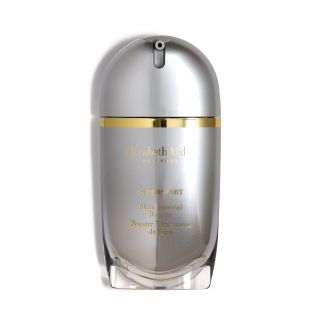
Dermatologists swear by the power of adding a humidifier to your home—especially your bedroom while you sleep—to surge skin with moist air. You can also boost skin's water level from the outside in with a powerful moisturizer. Dr. Engelman suggests prepping skin with Elizabeth Arden SUPERSTART Skin Renewal Booster, followed by a serum or cream. It helps fortify skin's natural ability to repair and renew—and restores the healthy look of skin's surface layer. And used before a serum and/or moisturizer it boosts the effectiveness of your skincare products. It also improves skin's natural moisture levels and optimizes skin's microflora to strengthen its natural defenses. "In order to enhance the health of skin and combat the drying effect of the environment, you have to take an outside in approach," says Dr. Engelman, who suggests combining nightly use of a humidifier and daily topical treatment. And while you can drink several Swell bottles of H20 a day, there's no guarantee it's making its way to skin. "Most people need a serum or cream to give skin ample hydration," she says.
Follow Marie Claire on Facebook for the latest celeb news, beauty tips, fascinating reads, livestream video, and more.
Nicole Catanese is a beauty and wellness editor.
-
 Charli D'Amelio Says Kim Kardashian "Inspired" Her to Work on Prison Reform
Charli D'Amelio Says Kim Kardashian "Inspired" Her to Work on Prison ReformThe social media star has partnered with REFORM Alliance.
By Iris Goldsztajn Published
-
 Henry Cavill and His Girlfriend Natalie Viscuso Are Expecting Their First Child
Henry Cavill and His Girlfriend Natalie Viscuso Are Expecting Their First ChildCongratulations are in order!
By Iris Goldsztajn Published
-
 Katy Perry's Top Almost Came All the Way Off on 'American Idol'
Katy Perry's Top Almost Came All the Way Off on 'American Idol'LOL.
By Iris Goldsztajn Published
-
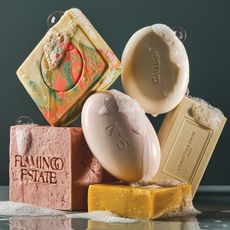 The Bar Soap Boom Is Here
The Bar Soap Boom Is HereDespite endless body wash options, the art of luxury soap making hasn't slipped away.
By Sophia Vilensky Published
-
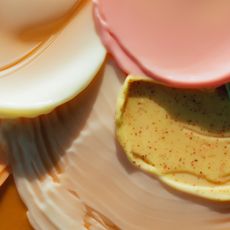 The 13 Best Products for Rosacea That Fight Redness and Irritation
The 13 Best Products for Rosacea That Fight Redness and IrritationFlare-ups are a thing of the past.
By Samantha Holender Published
-
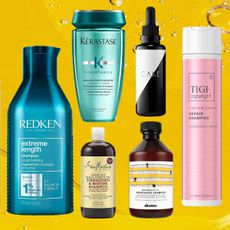 The 32 Best Hair Growth Shampoos of 2024, According to Experts
The 32 Best Hair Growth Shampoos of 2024, According to ExpertsRapunzel hair, coming right up.
By Gabrielle Ulubay Published
-
 The 20 Best Hair Masks for Damaged Hair, According to Experts and Editors
The 20 Best Hair Masks for Damaged Hair, According to Experts and EditorsHealthy strands, here we come!
By Gabrielle Ulubay Last updated
-
 Selena Gomez Just Shared Her Entire Morning Skincare Routine on TikTok
Selena Gomez Just Shared Her Entire Morning Skincare Routine on TikTokThe most giving girlie.
By Iris Goldsztajn Published
-
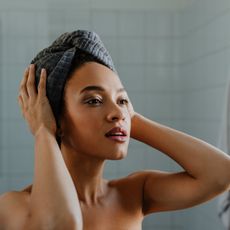 How Often You Should Wash Your Hair, According To Experts
How Often You Should Wash Your Hair, According To ExpertsKeep it fresh, my friends.
By Gabrielle Ulubay Published
-
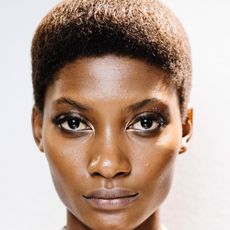 The 11 Best Magnetic Lashes of 2023
The 11 Best Magnetic Lashes of 2023Go ahead and kiss your messy lash glue goodbye.
By Hana Hong Published
-
 Beauty Advent Calendars Make the Perfect Holiday Gift
Beauty Advent Calendars Make the Perfect Holiday GiftThe gift that keeps on giving.
By Julia Marzovilla Last updated